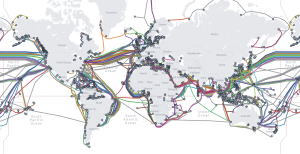The Future of Satellites: Revolutionizing Global Connectivity
The future of satellites is poised to revolutionize global connectivity, enabling faster and more reliable communication networks. With advancements in space technology, satellites are becoming increasingly important for a wide range of applications, from navigation and communication to weather forecasting and Earth observation. In this article, we will explore the future of satellites and their potential impact on our daily lives.
Advancements in Space Technology
Recent years have seen significant advancements in space technology, driven by investments from governments and private companies. One of the key areas of development is the launch of smaller, more efficient satellites, known as smallsats or cube satellites. These satellites are designed to be compact, lightweight, and inexpensive, making them ideal for a wide range of applications, including communication, navigation, and Earth observation.
Another area of development is the use of reusable launch vehicles, which are designed to reduce the cost of launching satellites into space. Companies such as SpaceX and Blue Origin are leading the charge in this area, with their reusable rockets capable of launching satellites into space and then returning to Earth for refurbishment and reuse.
Applications of Satellites
Satellites have a wide range of applications, from communication and navigation to weather forecasting and Earth observation. One of the most significant applications of satellites is in the field of communication, where they are used to provide internet connectivity to remote and underserved communities. Satellites are also used for navigation, providing location information and timing signals for a wide range of applications, including aviation, maritime, and land transportation.
In addition to communication and navigation, satellites are also used for weather forecasting and Earth observation. Weather satellites are used to monitor weather patterns and provide early warnings for severe weather events, such as hurricanes and tornadoes. Earth observation satellites, on the other hand, are used to monitor the health of our planet, tracking changes in the environment and providing valuable insights into the impacts of climate change.
Challenges and Opportunities
Despite the many advantages of satellites, there are also challenges and opportunities that need to be addressed. One of the key challenges is the issue of space debris, which poses a significant threat to the safety of satellites and other spacecraft. Space debris is made up of old satellites, rocket parts, and other objects that are no longer in use, and it can cause significant damage to operational satellites and other spacecraft.
Another challenge is the issue of regulatory frameworks, which are often unclear or inconsistent. This can create uncertainty and confusion for satellite operators, making it difficult for them to plan and operate their satellites. To address these challenges, there is a need for international cooperation and the development of clear and consistent regulatory frameworks.
Conclusion
In conclusion, the future of satellites is poised to revolutionize global connectivity, enabling faster and more reliable communication networks. With advancements in space technology, satellites are becoming increasingly important for a wide range of applications, from navigation and communication to weather forecasting and Earth observation. While there are challenges and opportunities that need to be addressed, the potential benefits of satellites are significant, and they are likely to play an increasingly important role in our daily lives.

